Do we need a Creativity Commission?
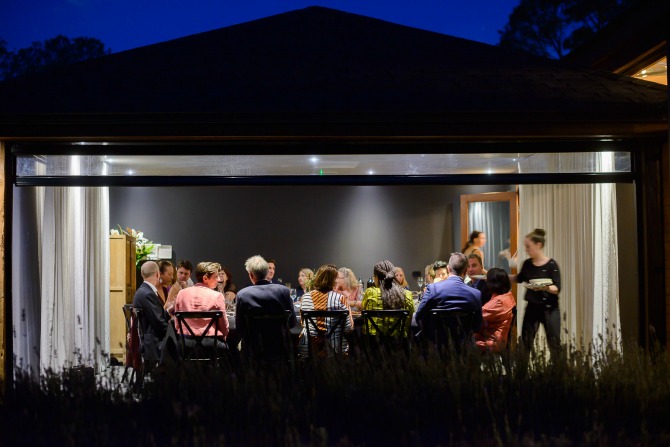
Posted on
Australia is heading towards a future built on algorithms and artificial intelligence, and our prosperity is precariously poised, says Gruen’s Russel Howcroft.
We need big, bold ideas – and a Creativity Commission could help us cultivate and channel those ideas.
Russel, who is also PwC Chief Creative Officer and Chair of the Australian Film Television and Radio School, was my guest speaker at Salon Canberra in mid-March, an event series I’ve been curating over the last year to spark ideas and innovation around the capital.
Australia is falling behind on several fronts, Russel told a select group of Canberra movers and shakers.
While we “punch well above our weight in Hollywood”, our investment in R&D is well below the OECD average while other nations take serious steps to harness creativity.
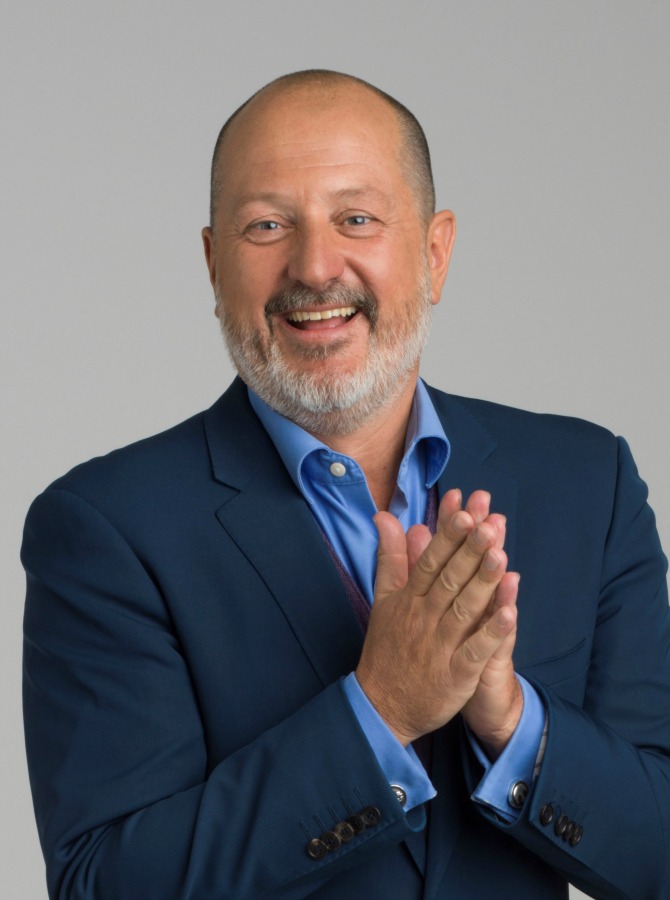
Russel Howcroft
The UK is fuelling its creative industries and wants one million more creative jobs by 2030. Indonesia has appointed a Minister for Creativity. And China is embedding creative thinking in its education system by moving beyond STEM to STEAM, Russel said.
The economic implications are clear. Australia is the world’s 13th largest economy, but PwC research has found we will fall to 29th place – roughly swapping positions with Bangladesh – by 2030.
This is something serious to ponder as we head towards a future of work in which artificial intelligence steers the ship.
And make no mistake – the robots are coming. The World Economic Forum says 42 per cent of job tasks will be conducted by machines or algorithms within three years.
Last year, Singapore’s national university undertook a large-scale research project to determine what skills would best equip students for the AI era. It found that future generations won’t need technical skills, but rather “soft” skills and drivers of creativity.
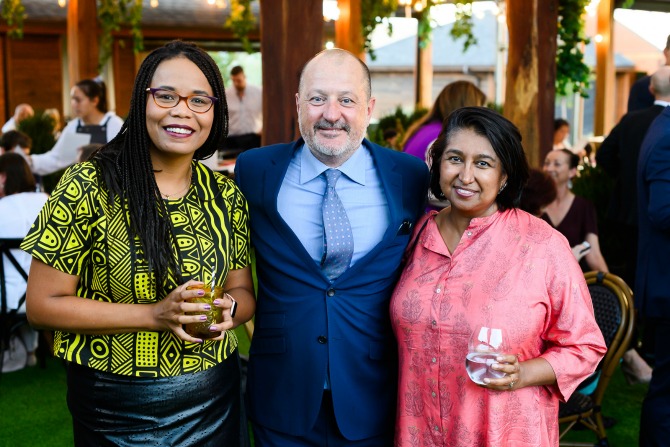
L-R: Cindy Mitchell, Russel Howcroft, Ritu Clementi at Salon Canberra.
This finding aligns with research undertaken by the UK’s National Endowment for Science, Technology and the Arts, which predicts creative jobs will enjoy a growth rate of 87 per cent by 2030, compared with a sharp decline across more traditional industries.
“Creativity is going to be incredibly important for every single human. How you apply creativity in your day-to-day work is going to be critical. Because if you’re just doing the usual stuff, there’s not going to be any need for you,” Russel said bluntly.
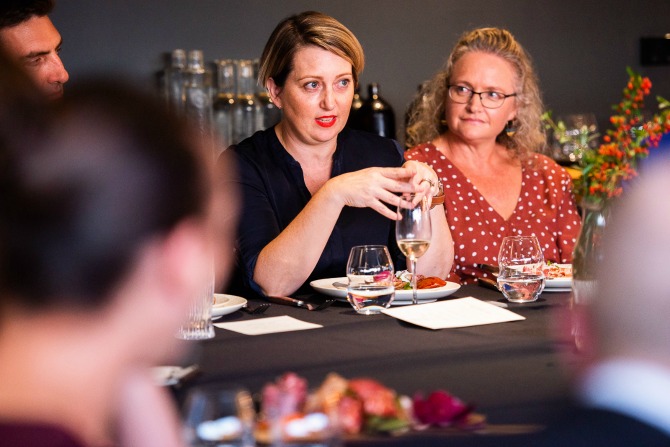
L-R: Amanda Whitley, Julie Nichols at Salon Canberra.
He’s seen this shift occur before his own eyes. A legal clerk bot can complete a human’s three-hour task in three minutes. In some professions, like law and accounting, “not everything is going to be OK”. And this is why we need to position creativity “front and centre”.
Russel says Australia’s systems and structures are such that we “need government to send us signals about what’s important”. He’d like to see government establish a Creativity Commission that would bring our best creative thinkers together to address our biggest challenges in “game-changing ways”.
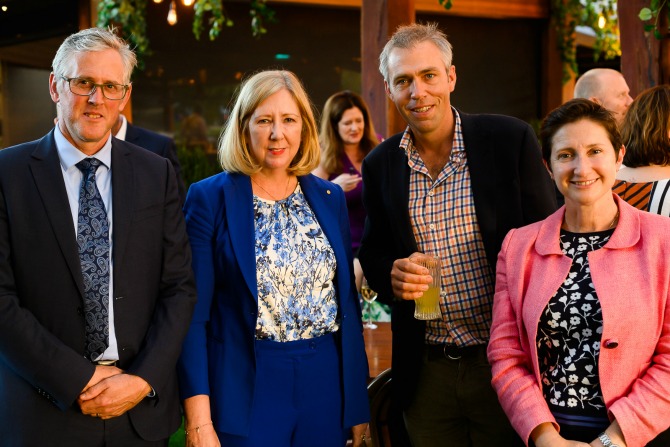
L-R: Andy Sharp, Dr Helen Watchirs OAM, Luke Osborne, Emma Thomas at Salon Canberra.
A Creativity Commission would be our “Future Fund of ideas, not just dollars,” Russel explained.
We have a precedent for a Creativity Commission. Just consider Australia’s abysmal performance at various Olympic Games in the 1980s and the turnaround that occurred after we set up the Australian Sports Commission.
The first task for the Creativity Commission would be to reorder the way creativity is taught in schools, Russel told the audience.
“Ninety-five per cent of kindergarten kids display genius levels of creativity,” he said. But by the time they’ve hit their teens, this has dropped to 50 per cent. And in adults it dwindles to a paltry five per cent.
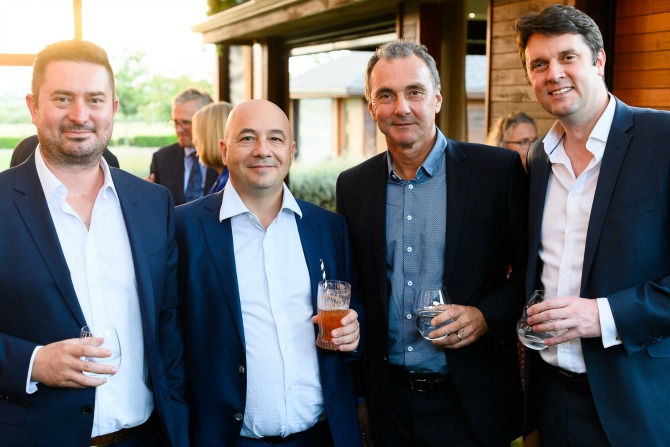
L-R: Jon Tanchevski, John de Margheriti, Dr Mathew Trinca, Thomas Bowden at Salon Canberra.
We simply don’t value creative thinking the way we should. Russel shared a story from his own experience. His son, currently in Year 12, is among a cohort of 240. But just a handful study art. “Everyone does Maths. Everyone does English. And eight people are doing art.”
Creativity is more than art, of course. It’s in the way we manage our society and economy, how we look at policy and how we tackle big picture problems.
My Salon guests see creativity in everything from film production to placemaking to property development. And when one of the guests worried that creativity was often tied to activities like “crocheting” with no real economic value, Handmade Market Canberra founder Julie Nichols pointed out that the craftspeople who sell their goods via the markets directly contribute over $15 million to the Canberra economy each year.
Yes, creativity is big business for Canberra – and it could be bigger.
Russel has established a Creative Economy Alliance and will soon launch a manifesto. “It’s moved on from a passion for me to something I really want to make happen,” he said.
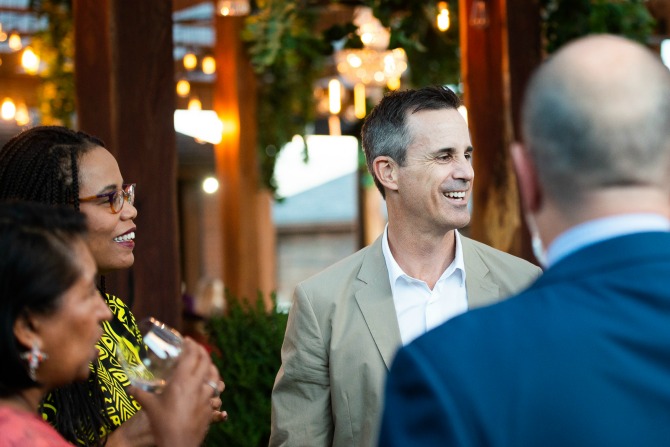
L-R: Cindy Mitchell, Jure Domazet at Salon Canberra.
AI looms large in the future of work, but this represents an “amazing opportunity for us to find a creative life” that is both personally fulfilling and “puts bread on the table”.
What’s at stake if we don’t embrace creativity? Russel Howcroft’s message is clear: Australia’s future prosperity.
Photography: Rohan Thomson


Leave a Reply
You must be logged in to post a comment.